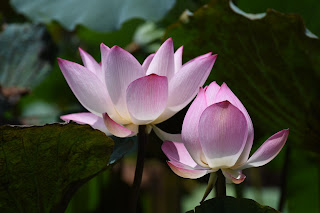Correct formula for making worm tea. Worm Tea I vermicompost se liquid fertilizer | good use in agriculture Vermi Compost Tea Benefits!
Correct formula for making worm tea. Worm Tea I vermicompost se liquid fertilizer | good use in agriculture।Vermi Compost Tea Benefits। crossorigin="anonymous">
style="display:block"
data-ad-client="ca-pub-6098966450721824"
data-ad-slot="9770451068"
data-ad-format="auto"
data-full-width-responsive="true">
To make worm tea, also known as vermicompost tea, you will need the following:
Materials:
1. High-quality vermicompost (worm castings)
2. Water
3. Container for brewing (e.g., a bucket or a large container with a lid)
4. Aeration device (e.g., an aquarium pump and airstone)
Instructions:
1. Fill the container with water. Use dechlorinated water if possible (let tap water sit out for 24 hours to allow chlorine to evaporate).
2. Add vermicompost to the water at a ratio of 1 part vermicompost to 5-10 parts water. For example, if you have 1 pound of vermicompost, use 5-10 pounds of water.
3. Stir the mixture thoroughly to ensure the vermicompost is well-distributed in the water.
4. Place the aeration device (aquarium pump and airstone) in the container to provide oxygen for the beneficial microorganisms.
5. Cover the container with a breathable lid or cloth to keep out pests while allowing airflow.
6. Allow the mixture to brew for 24-48 hours, stirring occasionally to keep the microorganisms oxygenated. Keep the container in a shaded area at a temperature between 60-80°F (15-27°C).
7. After the brewing period, remove the aeration device and strain the liquid to separate the solids (vermicompost) from the tea. You can use a fine mesh or cheesecloth to strain the liquid.
8. Dilute the worm tea before using it. The recommended dilution is typically 10 parts water to 1 part worm tea. For example, if you have 1 liter of worm tea, mix it with 10 liters of water.
9. Apply the diluted worm tea to the soil around plants or use it as a foliar spray. Avoid using undiluted worm tea, as it can be too concentrated and may harm plants.
It's important to note that worm tea should be used within 24-48 hours after brewing, as the beneficial microorganisms are most active and effective during this time. Also, make sure to use high-quality vermicompost to ensure the tea is nutrient-rich and free from contaminants.
Vermi Compost Tea Benefits
Vermicompost tea is a liquid fertilizer and soil amendment that is derived from vermicomposting, which is the process of using worms to break down organic waste materials into nutrient-rich compost. Here are some of the benefits associated with using vermicompost tea:
1. Nutrient-rich: Vermicompost tea is packed with essential nutrients, including nitrogen, phosphorus, potassium, calcium, and magnesium. These nutrients are readily available to plants, promoting healthy growth and development.
2. Organic and sustainable: Vermicomposting is an eco-friendly process that utilizes organic waste materials, such as food scraps and yard trimmings, to produce compost. Using vermicompost tea as a natural fertilizer helps reduce the need for synthetic chemicals and supports sustainable gardening practices.
3. Improves soil structure: Vermicompost tea enhances soil structure by improving its texture and increasing its water-holding capacity. This creates a favorable environment for plant roots, allowing for better nutrient absorption and reducing soil erosion.
4. Enhances plant growth and yield: The nutrient content of vermicompost tea promotes robust plant growth, leading to increased productivity and higher crop yields. It also helps strengthen plants' natural defense mechanisms, making them more resistant to diseases and pests.
5. Boosts beneficial microorganisms: Vermicompost tea is teeming with beneficial microorganisms, including bacteria, fungi, and protozoa. These microorganisms contribute to the overall health of the soil ecosystem by aiding in nutrient cycling, improving soil fertility, and suppressing harmful pathogens.
6. Supports biodiversity: Using vermicompost tea encourages a diverse and thriving soil microbial community. This biodiversity contributes to the overall health and resilience of the ecosystem, promoting long-term soil fertility and sustainability.
7. Safe for plants and the environment: Vermicompost tea is a natural and non-toxic fertilizer, making it safe for both plants and the environment. It does not contribute to water pollution or harm beneficial insects, birds, or other wildlife.
It's worth noting that while vermicompost tea offers numerous benefits, its effectiveness may vary depending on factors such as the quality of the vermicompost used, brewing techniques, and specific plant requirements. It's always a good idea to conduct proper research, consult local gardening experts, and follow recommended application guidelines when using vermicompost tea in your garden or agricultural practices.



टिप्पणियाँ
एक टिप्पणी भेजें